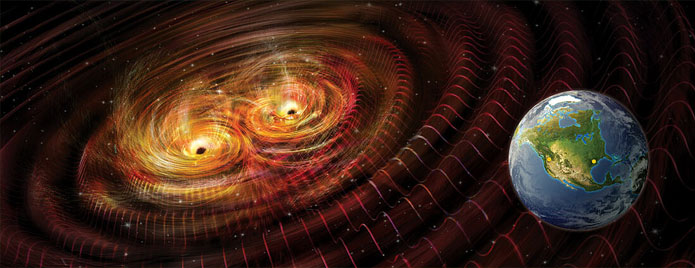
Nobels and Dissertations
On October 3, 2017, the Nobel Prize in Physics was awarded to Rainer Weiss, Barry C. Barish, and Kip S. Thorne for their contributions to measuring gravity waves, ripples in the very fabric of space and time. Believe it or not, this announcement has profound implications for yourdissertation…
As you may already know if you’ve been reading this blog for awhile, I’m kind of a science wonk. I earned a graduate degree in astronomy & astrophysics from the University of Chicago. While I studied there I actually met several Nobel laureates. In fact, the University of Chicago is quite proud of the fact that there are more Nobel laureates associated with them then any other university in the world.
So, as a science wonk, the announcement that the 2017 Nobel Prize would recognize gravitational waves was quite exciting. Think of the glassy smooth surface of a deep pond. If you throw a rock into the pond, the disturbance will radiate out as waves that can be felt by anything sitting on the surface.
In 1916, Albert Einstein predicted that space and time form the “fabric” of the universe and that this fabric has ripples in it, too — just like the surface of a pond.
These ripples in spacetime are made by gravity…actually by changes in gravity. But, just like the ripples on a pond fade almost immediately when a gnat lands on its surface, so, too, do gravitational waves…most of the time.
Orbiting planets, asteroid collisions, and binary stars are the outer-space analogs of gnats landing on a pond. The ripples are there, but imperceptibly small and gone in an instant.
When two black holes collide, though… That’s another story! A black hole is a stellar remnant, but it’s collapsed so far in on itself that its gravity has become so powerful that nothing — not even light — can escape. When two of these monsters get together their unfathomably strong gravity puts on quite a show. A show that sends ripples through the universe, spanning the great distances between galaxies!
So, why should you care about all of this? Believe it or not, there are technological and practical applications. But, let’s forget about that for now.
Before today, had you ever heard of Rainer Barish, Barry Weiss, or Kip Thorn? Probably not. In fact, you probably didn’t notice that I transposed two of the names & misspelled the third, even though you just read them 2 minutes ago! If any of those names do sound familiar, it’s likely Kip Thorne because he received a fair amount of press for consulting on Christopher Nolan’s movie, Interstellar, in 2014.
The point is that these guys are at the absolute top of the scientific game. They won the Nobel Prize. It took them more than 30 years working on this specific experiment to reach this level of recognition. And, you, a highly educated person in your own right, had never heard of them!
All this is to say, whatever you’re working on for your dissertation is notgoing to change the world. Whatever ripples you make as a researcher are almost certain to peter out faster than gravitational waves from a passing comet.
I say this not to discourage you, but to help you focus. If you’re like most doctoral students, you want to change the world. You want to make an impact, to help others, to have your voice be heard.
I want that for you. And, there’s plenty of time for you to do just that — after your graduate. For now, recognize that your dissertation is a means to an end. That end is graduation…earning your doctorate.
Trust me, Dr. You will have far more opportunities than Mr. or Ms. You ever will.
